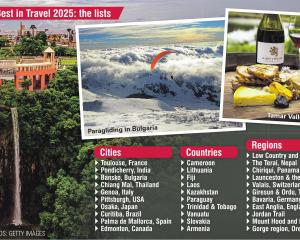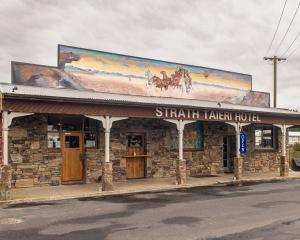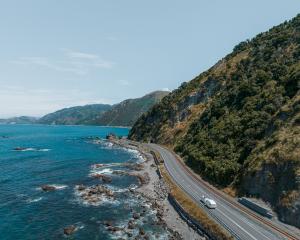
It was a situation I would normally have relished: stuck in a comfortable mountain hut with a bar, restaurant and sauna. A blizzard raging outside. Warm on the inside. Board games and books available. This was Norway and the four of us knew not to overdo the beer and snacks. Yet, when the storm relented and we were free to leave, I got the bill. My heart only restarted when I thought about the extra expense of a cardiac arrest.
I suppose many visitors to Scandinavia go through a similar moment of financial panic. It usually happens, like mine, on the first trip. Think of it as a learning curve, like the one traced by Eddie the Eagle as he plummeted prematurely earthwards after a moment of graceful flight. It’s one of life’s supreme challenges: how does one make Scandinavia affordable? Perhaps it’s impossible, but at least we’ll give it our best shot.
Free stuff and activities
Lots of outdoor activities in Scandinavia don’t cost anything.
There are shelters, huts and firepits everywhere, freely available to all. In Copenhagen you can kayak around the harbour free of charge with Green Kayaks, on the understanding that you litter-pick while out. There’s a superb summer swimming area there too, plus lots of beaches like Amager Strand further out. Stockholm offers free outdoor swimming opportunities galore.

Another great tip is to make yourself into the freebie.
Volunteering is big in Scandinavia. In return for accommodation and food, you might find yourself on cooking duties for a family, or painting the farm’s barn, or looking after the horses.
A lot of infrastructure in Scandinavia is set up to help you: buses and trains carry bikes, there will be a hut with a fireplace or log burner at the end of your hike, the lake will have a jetty to dive from. In Sweden there are lovely old kallbadhus, cold bath houses; Gothenburg is getting a spectacular public sauna built from recycled materials; Stockholm already has one at Hellasgarden, a short bus ride from the centre (it’s not free, but affordable at £7.90 / $NZ16.30).
The competence and skill of locals at accessing the great outdoors can be intimidating to outsiders, something that inspired Thomas Ohlander and Helena Hjort from Sweden’s Do The North. Their trips try to teach visitors how to get out there.

"We do run guided kayak trips," says Helena, "but we also rent gear for self-guided paddling adventures and plenty of total beginners go for that."
The abundance of islands, all close together, with wild camping spots galore helps (and is obviously cheaper than joining a hosted trip).
Transport
Look out for deals on travel passes: for example, the Oslo Pass (24 hours, adults from £36) gets you free public transport and entry to museums and galleries, as well as discounts on restaurants and cafes. With planning, the pass can pay for itself.
The Discover Copenhagen Card (24 hours, from £52) has similar advantages, but the wide regional coverage gets you out to places like Roskilde with its Viking Ship museum (adult entry May-Oct £18, under-18s free) and medieval cathedral (free entry). You can also go to Helsingor and take the short ferry ride to Helsingborg in Sweden.
Stockholm’s card (one day, £60) is not as wide-ranging, though it does include access to some hop-on, hop-off boat and bus tours around the city.

Accommodation
In Sweden the right to roam, allemansratten, is in the constitution. Wild camping is allowed as long as you leave no trace and stay away from roads and buildings. Wilderness areas can be huge and careful planning is required.

When you are in towns, he suggests finding municipal and community centres that offer cheaper beds.
In Denmark there are more than 1000 free camping locations. The West Coast cycle route — from Rudbol on the German border to the northern tip of Denmark at Skagen — also has free overnight shelters. Danish forests allow overnight camping, but read the rules. Hostels such as Book1 in Aarhus are dotted across the country.

"They vary a lot in price," says Hjort. "It’s quite pricey to stay along the popular King’s Trail, for example, but much cheaper if you choose a less-populated trail and cabins with fewer facilities."
In the Valadalen area there are a number of good upland hut options, or try the Kuststigen Bohuslan coastal trail, a series of more than 370km of trails along the west coast north of Gothenburg, with a variety of farm and hostel accommodation.
The atmosphere in mountain huts across Scandinavia is like staying with an extended family who have adopted you. Visitors muck in together, sharing food, chores and fun. Accessing that communal interdependence in a spirit of self-reliance is the key to a more affordable Scandinavian trip.
Food and drink
Norway and Denmark are regularly in the top five most expensive countries to eat out in, with Sweden not far behind. However, there are ways to dine that don’t break the bank, and plenty of locals are searching for affordable meals out, too.
In Sweden, look for dagens ratt, basically dish of the day, usually available at lunchtime. These are good value, at £8-£12 for main course, side salad and unlimited coffee.
In Norway, at breakfast it’s common to make a matpakke, a lunch sandwich, to take away.

Also check out street food markets in Odense and Aalborg.
— The Guardian












